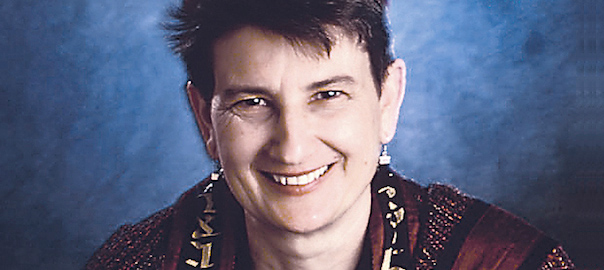Rabbi Lisa in the Jewish Journal

Our very own Rabbi Lisa Edwards has written a D’var Torah on this week’s Parashat Noach which was published this week in the Jewish Journal! Read it here (you can pick up your own free copy of the magazine this week at BCC):
Word went out from the congregation that a longtime member was nearing the end of her life. She has no partner and no children, but, on the day after Yom Kippur, 17 friends from the congregation came to visit her, including current and former clergy, and grown children she used to baby-sit.
“In whatever way it comes into our lives, we give thanks for the blessing of family,” we read each Friday night at our synagogue, after the candles are lit, part of our Shabbat blessing for family.
And in a congregation such as ours, where families take shape in a multitude of configurations — by birth (including surrogacy and sperm and egg donors); by adoption; by fostering; by shared parenting; by single parenting; by not parenting; bonded by choice, by coincidence or convenience; in loving pairs; in friendship groups; across generations; elders sharing housing — no one knows better than we do that there are many ways to create family, and that no bonds are stronger or deeper, more important or more sustaining.
In Parashat Noach, God instructs Noah to bring all the animals onto the ark two by two, l’mi-nai–hu(according to their kind/their species) (Genesis 6:20). Noah, his wife, their sons and their wives, and all the animals dwelt on the ark for over a year, long past the 40 days and 40 nights of rain, through the flooding and then the drying up. Even after the dove had returned with the olive branch and then disappeared, Noah and company remained on the ark, finally leaving it only when God told them to do so (Genesis 7:24-8:19).
The commentaries and midrash writers ponder the obvious questions: Why didn’t Noah emerge sooner from the ark? Why did he wait so long, even though he knew the ground had dried and plants had once again begun to grow? Why did God have to instruct him to leave the ark? Some say it was fear that God might bring another destruction, evidenced by the fact that Noah’s first act off the ark was to build an altar and make a sacrifice to God. Or perhaps it was guilt that he had left so many to die in the flood? Perhaps it was post-traumatic stress disorder, signified by the fact that Noah, once again on dry land, plants a vineyard and gets drunk (Genesis 9:20-21).
Read the full story on the Jewish Journal




